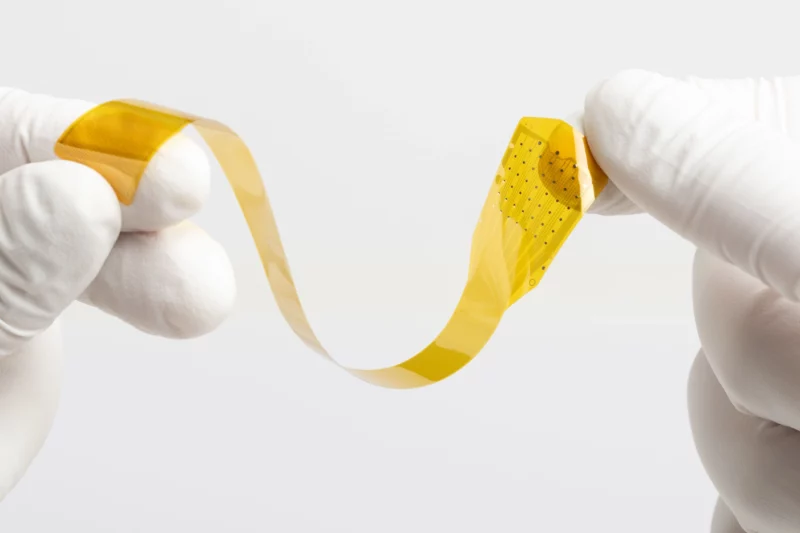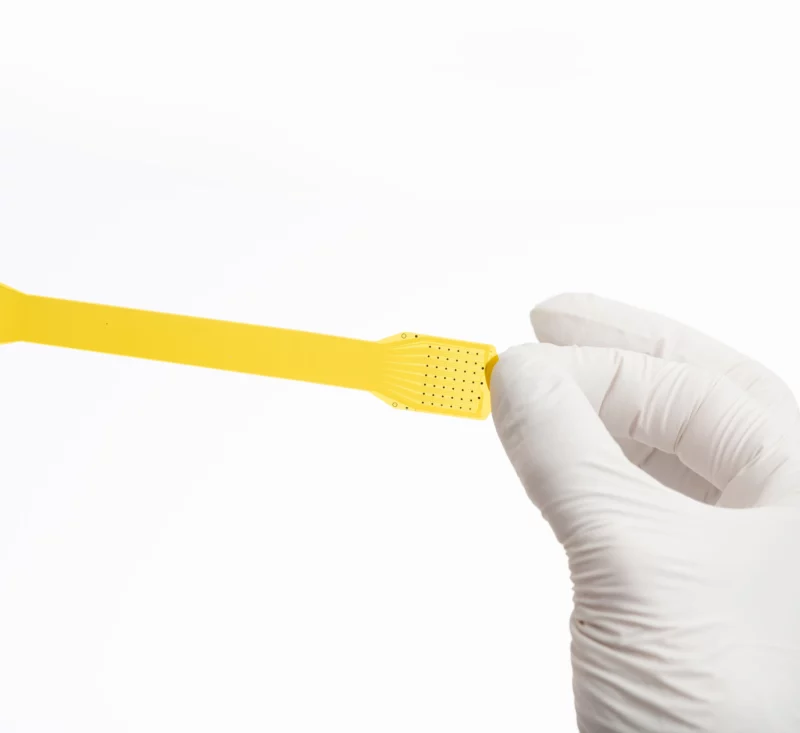Ars chats with Precision, the brain-chip maker taking the road less invasive

Enlarge / Precision’s Layer 7 Cortical Interface array. (credit: Precision)
Work toward brain-computer interfaces has never been more charged. Though neuroscientists have toiled for decades to tap directly into human thoughts, recent advances have the field buzzing with anticipation—and the involvement of one polarizing billionaire has drawn a new level of attention.
With competition amping up in this space, Ars spoke with Ben Rapoport, who is a neurosurgeon, electrical engineer, and co-founder of the brain-computer interface (BCI) company Precision Neuroscience. Precision is at the forefront of the field, having placed its BCI on the brains of 14 human patients so far, with two more scheduled this month. Rapoport says he hopes to at least double that number of human participants by the end of this year. In fact, the 3-year-old company expects to have its first BCI on the market next year.
In addition to the swift progress, Precision is notable for its divergence from its competitor's strategies, namely Neuralink, the most high-profile BCI company and headed by Elon Musk. In 2016, Rapoport co-founded Neuralink alongside Musk and other scientists. But he didn't stay long and went on to co-found Precision in 2021. In previous interviews, Rapoport suggested his split from Neuralink related to the issues of safety and invasiveness of the BCI design. While Neuralink's device is going deeper into the brain—trying to eavesdrop on neuron signals with electrodes at close range to decode thoughts and intended motions and speech—Precision is staying at the surface, where there is little to no risk of damaging brain tissue.
